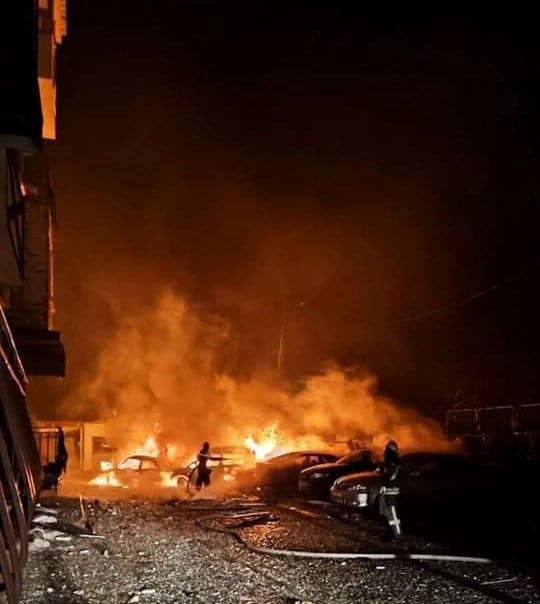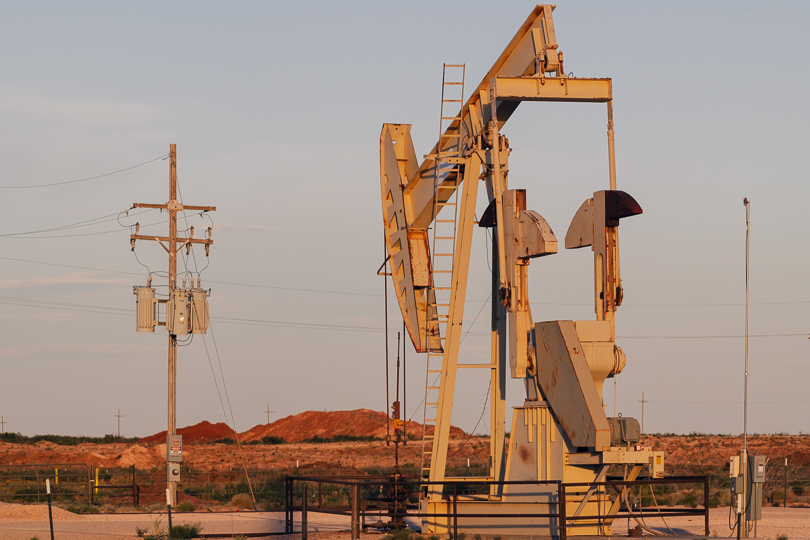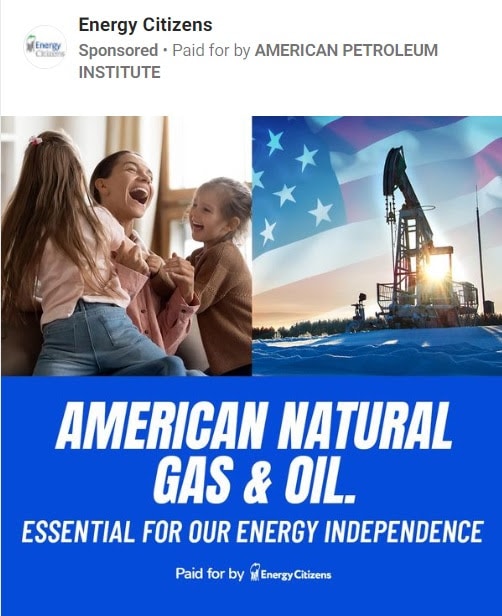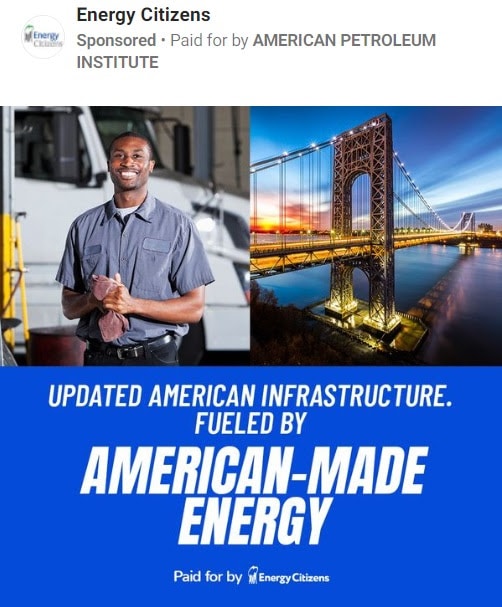While Russia dropped missiles on Kyiv and laid siege to the port of Mariupol in late February, the oil and gas industry took advantage of the war in Ukraine to spread misinformation about the causes of the energy crisis in order to apply political pressure and pursue a longstanding wish list of policy changes, according to new research.
Energy prices soared in the aftermath of the Russian invasion. In response, the oil and gas industry waged a concerted influence campaign that blamed the Biden administration’s climate policies for undermining American energy independence and for causing a spike in prices, according to a report from InfluenceMap, a corporate watchdog group. Across an array of platforms, the industry and its allies framed more drilling and looser regulation as a solution to these problems, and advocated for policies that had tenuous connections to the global energy crisis but were nonetheless favorable to the fossil fuel industry.
“The U.S. oil and gas sector has consistently argued for policies that allow for new or increased fossil fuel exploration, and against policies that would reduce demand. But what’s changed in recent months is the intensity of that message,” said Faye Holder, program manager for InfluenceMap. “The sector has quickly mobilized around the war in Ukraine and high gas prices to promote the need for more ‘American-made energy,’ often relying on potentially misleading or questionable claims.”
DeSmog previously reported on oil executives’ and lobbyists’ PR blitz in the days following Russia’s invasion of Ukraine, a move which sought to take advantage of the crisis to secure largely unrelated policy victories. But InfluenceMap’s new study offers a deeper and more comprehensive examination of how the industry attempted to influence public opinion.
This analysis looked at ads and messaging by the oil and gas industry across social media, traditional media, public presentations, investor calls, and interactions with U.S. policymakers. Trade organizations and big business groups dominated the airwaves, including the American Petroleum Institute (API), American Gas Association, National Association of Manufacturers, U.S. Chamber of Commerce, and Consumer Energy Alliance.
The results of InfluenceMap’s analysis showed an intense ramp up in ads aimed at promoting the industry as the answer to the crisis. For example, from January 26 to April 1, API created and ran 761 individual ads through its astroturf organization, Energy Citizens, that promoted “American-made energy” or “energy independence.” These ads have been seen more than 23 million times.
A particularly active period occurred just before and immediately after the onset of war in Europe. Between February 4 and March 31, Energy Citizens ran 233 individual ads related to energy security and energy independence, which were seen 19.6 million times, equivalent to roughly 10 percent of all Facebook users in the United States, according to InfluenceMap. By way of comparison, Energy Citizens only ran 67 ads focusing on energy security and energy independence in the last three months of 2021, which were viewed 6 million times.
The echo chamber also kicked into high gear at the onset of war, amplifying misleading claims across media platforms. Fox News mentioned the defunct Keystone XL pipeline 141 times as part of its Ukraine coverage between February 22 and February 28. But the tar sands pipeline — which had been dead for over a year — had no bearing on the gyrations in energy markets in early 2022. Even if President Biden hadn’t pulled the plug on it in his first day in office, the pipeline project would not have been constructed before 2023.
Oil executives were also not shy about trying to mislead the public about the nature of the energy crisis, according to InfluenceMap. At the CERAWeek Conference in Houston in March, ConocoPhillips CEO Ryan Lance said that “poor energy policy, poor regulatory policy” and a “rapid push to renewable energy and a maligning of the fossil fuel industry” contributed to higher gasoline prices, which in places like California were topping $6.00 a gallon. Chevron CEO Mike Wirth said the pursuit of “ever cleaner” energy compromised affordability and reliability.
In late March, AFP Fact Check, a global fact-checking organization, debunked the assertion that climate policies from the Biden administration somehow restrained oil and gas output, or undermined American energy security, calling it “misleading.”

The real causes of high energy prices lie elsewhere. Oil production plunged at the beginning of the pandemic, and has not bounced back as quickly as demand. The global reaction to war in Ukraine has forced some Russian oil supply off the market, jolting prices even higher. In addition, even as the U.S. oil industry pats itself on the back for the vital role it plays in serving American energy security, oil companies themselves are not drilling as aggressively as in years past because investors want them to keep costs down after having lost hundreds of billions of dollars during the decade-long fracking boom.
Put simply, oil companies can drill if they want to — there are few policy restraints or obstacles standing in their way — but Wall Street is pleased with the current dynamic of modest drilling activity and swollen profits from high prices.
But oil lobbyists still used the crisis to lock in fresh policy wins. In addition to a barrage of advertising, the pressure also took the form of direct requests to Congress and the Biden administration. The American Exploration and Production Council and LNG Allies, lobbying outfits for independent fracking companies and LNG exporters, respectively, pressured the U.S. Department of Energy (DOE) to immediately approve pending applications for 17 new LNG export terminals. DOE quickly obliged, approving two LNG permits in March.
Under withering pressure from the fossil fuel industry, the Biden administration explicitly centered LNG as a major policy solution to Europe’s energy crisis, announcing a joint U.S.-EU energy plan to ramp up American gas exports to Europe. Environmental advocates in Louisiana are questioning whether this LNG push is running over public input on proposals to build huge new floating LNG export terminals in the Gulf.
Fossil fuel interests also took advantage of the war in Ukraine to further another long-standing objective: to remove or weaken scrutiny over greenhouse gas emissions from permitting processes for major energy projects. On that front, the industry scored a substantial victory in March when the Federal Energy Regulatory Commission (FERC) backtracked on a new policy that would have stepped up oversight of the climate impacts of new gas pipelines following an uproar from fossil fuel lobbyists and industry-friendly members of Congress.

Another so-called solution pushed for by oil and gas companies and their allies is leasing more federal lands for drilling, even as the industry sits on a stockpile of thousands of leases and drilling permits. Notably, oil lobbyists fail to mention the fact that the Biden administration’s first year in office saw permits for new drilling occur at a faster pace than the Trump administration, much to the ire of climate activists.
As InfluenceMap notes in its new report, the policy changes the industry marketed as solutions to the current energy crisis — looser regulations, faster permitting, more drilling — are in fact long-standing items on industry wish lists that would do little to combat the current crisis. New LNG terminals take years to build and, even if approved, new export terminals along the U.S. Gulf Coast may not come online until the mid- to late-2020s.
The danger, activists point out, is that if the fossil fuel industry succeeds in shaping U.S. policy, it will lock in new oil and gas infrastructure, potentially for decades to come. Permitting and construction of pipelines and LNG terminals occurs over multiple years, but once online, the infrastructure needs to operate for several decades in order to justify the market risk and heavy upfront investment, which can cost billions of dollars. Scientists and even energy experts say that to head off the worst of the climate crisis, no new fossil fuel infrastructure should be built, and fossil fuel production and consumption needs to be phased out.
InfluenceMap said the flurry of activity from fossil fuel interests had echoes of the Covid-19 pandemic, when amid the fog of crisis, the oil and gas industry sought bailouts and aggressive deregulation. The Trump administration gave them what they wanted, showering the industry with cash even though shale drillers’ financial problems long preceded the pandemic. “These incidences reveal how the oil and gas industry quickly mobilizes during moments of crisis to push its agenda,” InfluenceMap wrote in its report.
“It took the industry no time at all to twist the dangerous situation in Ukraine into a financial boon for oil and gas executives and their shareholders,” U.S. Sen. Sheldon Whitehouse (D-RI) said in a press release, reacting to the findings in the report. “Deploying misinformation to capitalize on an international crisis is straight out of the fossil fuel industry’s well-worn, nasty playbook.”
Subscribe to our newsletter
Stay up to date with DeSmog news and alerts









